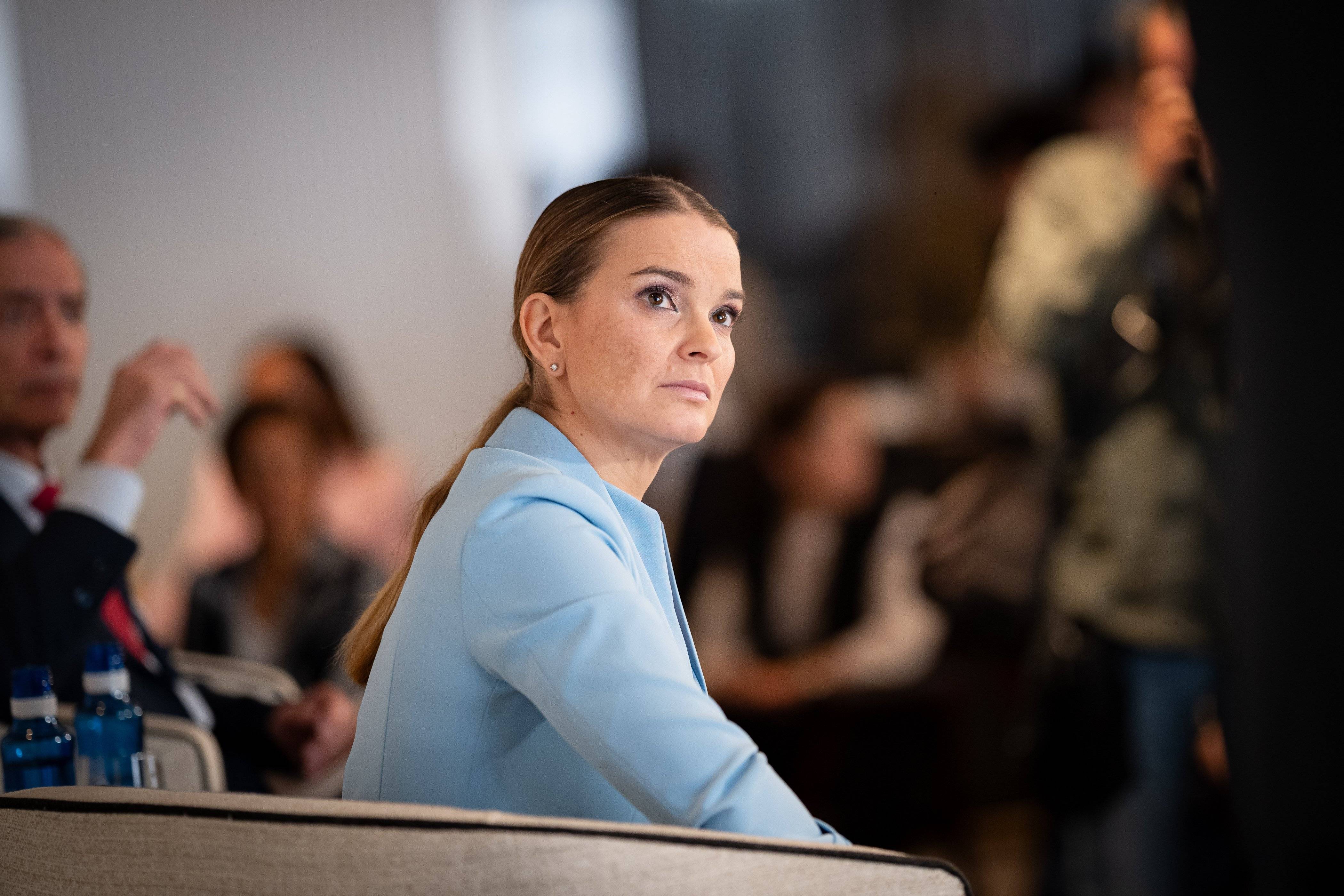A chaotic split in Spain's far right. The Vox group in the Balearic Islands Parliament, initially made up of eight MPs, has split into three, eight months after the results of the elections on May 28th last year. First, last October, deputy Francisco José Cardona resigned from the party and has continued as an independent deputy in the Balearic Parliament. The reason: that his far-right party did not support the spending ceiling set by the autonomous government of the Mediterranean island group, formed by the right-wing People's Party (PP). Now, the day after Santiago Abascal has been re-elected as Spanish leader of Vox at the party's general assembly, the group has split again.
A morning of political blood-letting in the far-right group went like this: a group of five deputies announced that they were expelling the speaker of the Balearic Parliament, Gabriel Le Senne, and the party leader for the island group, Patricia de las Heras, from the Vox parliamentary group in Mallorca. These two deputies, from now on, will be non-affiliated MPs - without a parliamentary group - but they do have the support of the Spanish leadership of Vox, that is, of the leadership of Abascal. And not only that, the extreme right leader is to propose the expulsion from the party of the five rebels who have expelled Le Senne and Patrícia de las Heras from the parliamentary group. This schism is independent of that made by Francisco José Cardona, who has been working as an independent deputy for months. Thus, Le Senne and De las Heras will continue to be part of Abascal's party; the five breakaway deputies, on the other hand, will work independently, and could reach agreements with the PP, with whom they would already have an absolute majority; the other rebellious deputy will also work on his own.

The five Vox rebels, open to relations with the PP
The People's Party, which governs alone in the islands, has 25 deputies and is five away from an absolute majority of 30. Thus, the five disobedient MPs of Abascal's party (Idoia Ribas, Sergio Rodríguez, Manuela Cañadas, María José Verdú and Agustín Buades) could facilitate governability for the PP, reaching agreements and strengthening the executive of the Balearic president, Marga Prohens. In fact, the words of the five rebel extremists were along these lines, and this Monday they affirmed that "they will begin this next period of parliamentary sessions with the satisfaction of a job well done and the commitment to continue advancing in collaboration with the PP, which means continuing to work in the same line". In addition, they asserted their support for the agreements reached with the conservatives, explaining that in the first six months of the legislature they already consider 37% of the agreements made as part of the deal to help Prohens to form a government have been fulfilled.
PP-Vox, a difficult relationship so far in the Islands
Up till now, however, the far right has made the PP executive's life difficult, maintaining hard and inflexible positions when negotiating agreements. One example is when Vox dissented with the executive's spending ceiling or how last week the former president of the Vox parliamentary group, Patrícia de las Heras, demanded an end to Catalan linguistic immersion and railed at the fact that it remained in place six months after the elections, with the emblematic project for a Linguistic Office left to one side. The five Vox rebels, therefore, could make things easier for the Balearic PP government. One of the first issues they will have to negotiate is the new speaker of the Parliament. Since the five rebels have expelled the current speaker of the chamber from their parliamentary group, under the regulations a new speaker will have to be sought. The vote could take place on February 6th.
Thus, the situation could strengthen the PP executive under Marga Prohens, who was elected as president of the Balearic Islands with the abstention of the then eight Vox deputies, after the PP accepted tough conditions from the far right, including its speakership of the chamber, a 20 million euro fund to displace Catalan from Balearic schools, and the elimination of assistance to union groups and employer associations.

